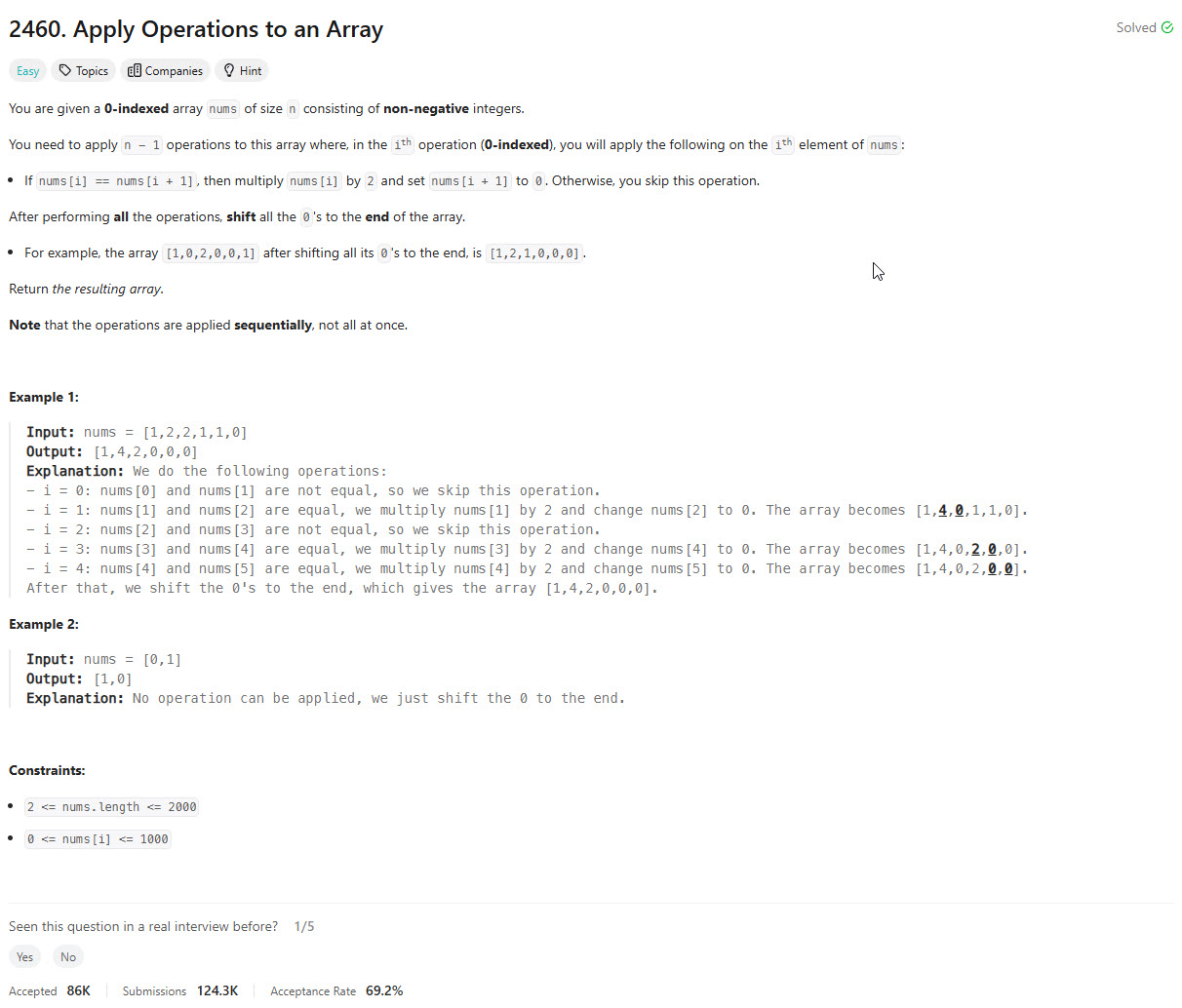Problem of The Day: Apply Operations to an Array
Problem Statement

Intuition
The problem requires modifying an array based on adjacent equal elements and then shifting non-zero elements to the left. The first step is straightforward: if two consecutive elements are equal, we double the first one and set the second to zero. After that, we need to rearrange the array so that all non-zero elements come first while maintaining their relative order.
Approach
-
Modify the Array:
- Iterate through the array and check for adjacent elements.
- If two consecutive elements are the same, double the first one and set the second to zero.
-
Rearrange the Array:
- Use two pointers (
startandend) to move all non-zero elements to the left while maintaining their order. - Swap non-zero elements with zeros to shift them to the front.
- Use two pointers (
Complexity
-
Time complexity:
- The first loop iterates through the array once, performing a constant-time operation for each element: \(O(n)\).
- The second loop also iterates through the array once, making swaps in constant time: \(O(n)\).
- Overall complexity: \(O(n)\).
-
Space complexity:
- The algorithm modifies the input array in place, using only a few extra variables: \(O(1)\).
Code
from typing import List
class Solution:
def applyOperations(self, nums: List[int]) -> List[int]:
N = len(nums)
for i, num in enumerate(nums):
if i + 1 < N and nums[i] == nums[i + 1]:
nums[i] *= 2
nums[i + 1] = 0
start, end = 0, 0
for end in range(N):
if nums[end] != 0:
nums[end], nums[start] = nums[start], nums[end]
start += 1
return nums
Editorial
Approach 1: Brute Force Simulation
class Solution:
def applyOperations(self, nums: List[int]) -> List[int]:
n = len(nums)
modified_nums = []
# Step 1: Apply operations on the array
for index in range(0, n - 1):
if (nums[index] == nums[index + 1]) and (nums[index] != 0):
nums[index] *= 2
nums[index + 1] = 0
# Step 2: Move non-zero elements to the front
for num in nums:
if num != 0:
modified_nums.append(num)
# Step 3: Append zeros to maintain the original size
while len(modified_nums) < n:
modified_nums.append(0)
return modified_numsx
Approach 2: Memory Optimization
class Solution:
def applyOperations(self, nums):
n = len(nums)
# Step 1: Apply operations on the array
for index in range(n - 1):
if nums[index] == nums[index + 1] and nums[index] != 0:
nums[index] *= 2
nums[index + 1] = 0
# Step 2: Shift non-zero elements to the beginning
non_zero_index = 0
for iterate_index in range(n):
if nums[iterate_index] != 0:
nums[non_zero_index] = nums[iterate_index]
non_zero_index += 1
# Step 3: Fill the remaining positions with zeros
while non_zero_index < n:
nums[non_zero_index] = 0
non_zero_index += 1
return nums